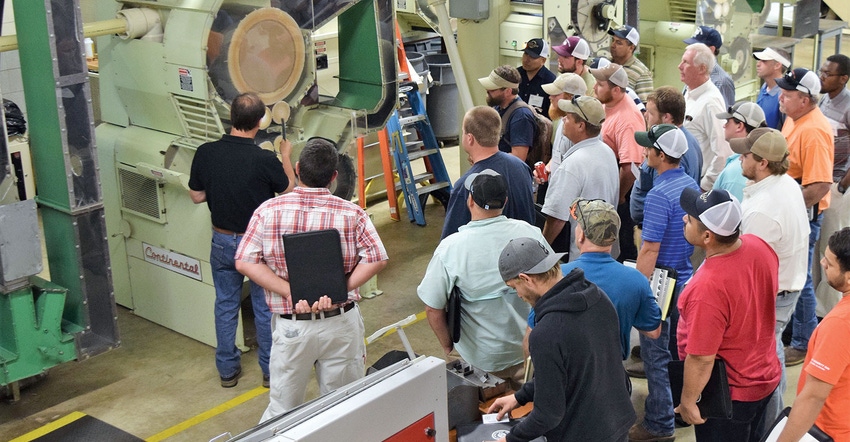
Registration is now open for the 2019 Ginner Schools. Held at each of the three USDA Cotton Production and Research Laboratories, the Ginner Schools offer three levels of course instruction. “Each level of ginners school coursework is built on the previous level of instruction with Level I as the foundation,” explains Greg Holt, research leader at the facility in Lubbock, Texas.
School locations and dates include: Southwest Ginners Schools at the South Plains Ginning Laboratory in Lubbock, Texas, on April 1-3; Western Ginners School at the Southwest Ginning Research Laboratory in Mesilla Park, N.M., on May 7-9; and Stoneville Ginners School at the USDA Ginning Laboratory in Stoneville, Miss., on June 4-6.
Among the topics to be covered are seed cotton drying and cleaning through the ginning process, and gin waste disposal methods. “All levels will include practical information on all aspects of ginning,” says Harrison Ashley, vice president, Ginning Services, National Cotton Council (NCC) and the executive vice president, National Cotton Ginners Association (NCGA). “An overall emphasis will be placed on increasing ginning efficiency, turning out high-quality fiber, and a strong focus on improving safety around ginning operations.”
Credit cards can be used to pay for school registration and may be done online at www.cotton.org/ncga/ginschool/index.cfm. The schools will continue to offer the three levels of course instruction, and continuing education classes which will focus on increasing capacities, gin efficiencies, drying and precleaning, gin monitoring and automation, electrical and electrical safety, and plastic contamination detection.
The coordinating efforts for each of the three schools is conducted collaboratively by the NCGA and Greg Holt, and the three USDA ginning laboratories. School cooperators include: USDA’s Agricultural Research Service, NCGA and its member associations, the NCC, Cotton Incorporated, gin machinery/equipment manufacturers and suppliers, as well as select land grant universities.
About the Author(s)
You May Also Like




